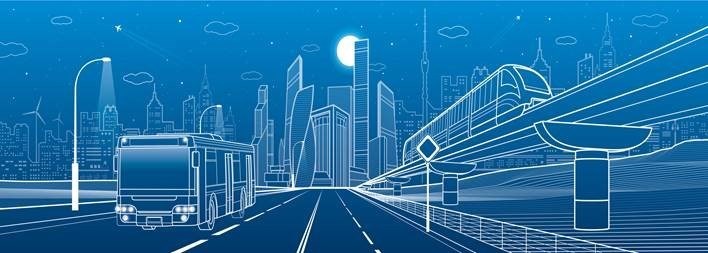19 Jul 2021
Arriva Blog: During the UK's Net Zero National Awareness Week we remember that modal shift could have the greatest impact.

Jana Siber, Managing Director Mainland Europe
Today marks the start of the UK’s Net-Zero National Awareness Week and represents an opportunity for companies and governments to reflect on their plans to achieve net-zero emissions, while acknowledging the enormous scale of the challenge that stands before us.
I believe the ambitions are possible, but it will require a quantum leap in the way that we approach mobility, especially in our towns and cities.
One of the unexpected silver linings that we saw in the early days of the pandemic was the dramatic improvements in urban air quality. We saw this trend repeated across European cities including some of our most polluted. In London, figures released from air quality monitoring equipment in April last year showed Marylebone Road, one of the capital’s busiest roads – had posted a 48% reduction in the most harmful emissions. But now this trend is reversing, Transport for London has reported that some roads into the capital have seen a jump in car traffic to beyond pre-Covid levels and it would be a tragedy if this is the legacy of Covid, particularly at a time when decarbonisation is more urgent than ever.
As the UK looks towards Monday and the lifting of all restrictions and the full re-opening of the economy, we must bring people back to public transport services. Transport emissions represented 27% of total greenhouse emissions in the UK (2019 data) and 27% of the EU (2017 data) and we know the vast majority of these are coming from road transport, so significant modal shift away from the private car could have a huge beneficial impact.
It is often said that a full double decker bus can take 75 cars off the road. This creates a virtuous circle – less cars equals less emission and less pollution, but it also means less congestion which in turn allows public transport services, such as buses, to move more freely, which then promotes predictable and faster journey times, making public transport more attractive. Even a diesel-powered bus will bring this benefit – after all, an electric car traffic jam is still a traffic jam which prevents free movement of mass-transit vehicles.
So, we must take a dual approach. We must accelerate the roll out of zero emission vehicles across Europe and work with Governments to increase the pace of this and to plan for the infrastructure required. We are also adopting innovative new technologies, for example hybrid trains are being introduced by our UK train operating company Chiltern Railways which can use battery power for the first and last kilometre and reduce emission in city centres. Most importantly, we mustn’t forget that modal shift brings the biggest and most immediate benefits. Shifting from cars to existing conventionally powered trains and buses will significantly lower greenhouse gas emissions right now, without the need for new rolling stock or significant infrastructure which sometimes takes years or decades to start bringing benefits.
Now is the time for Government’s and private companies to work together towards a common cause. With COP26 taking place in the UK later this year, climate change is top of the agenda. Public Transport plays a vital role and now is the time for pro-public transport campaigns from Governments, particularly as we recover from the pandemic and strive build back better and greener!
Contact information
Camilla Wrey
wreyc@arriva.co.uk

